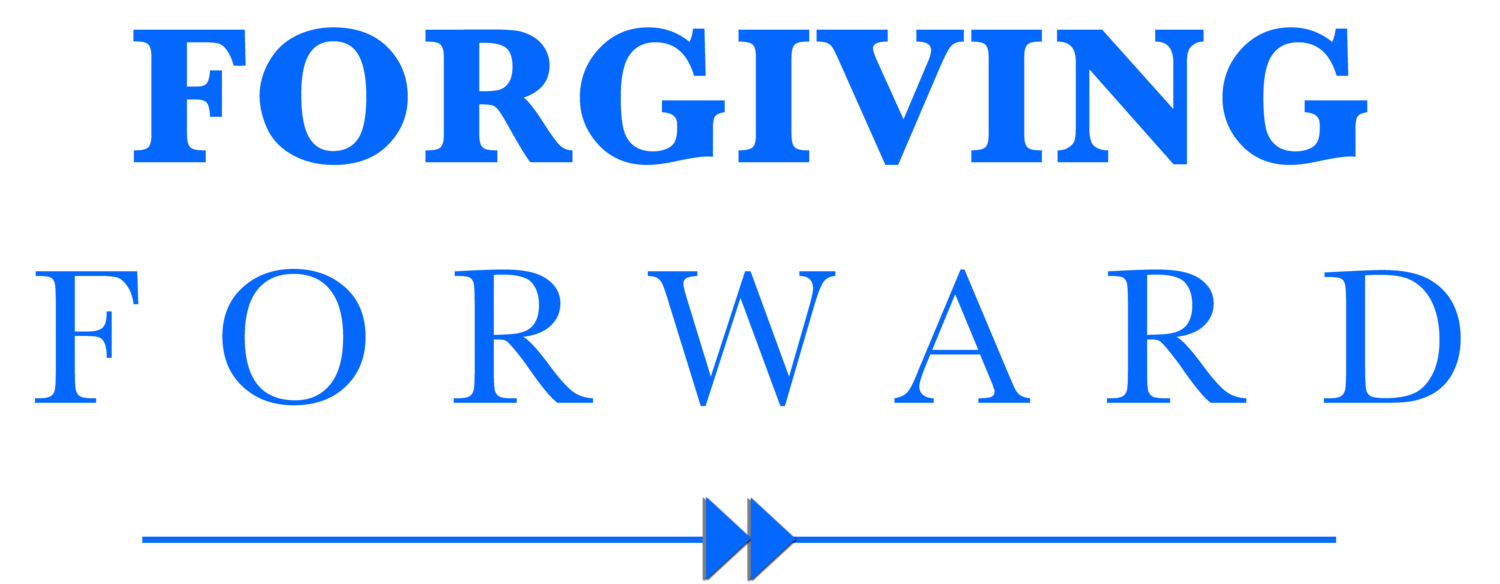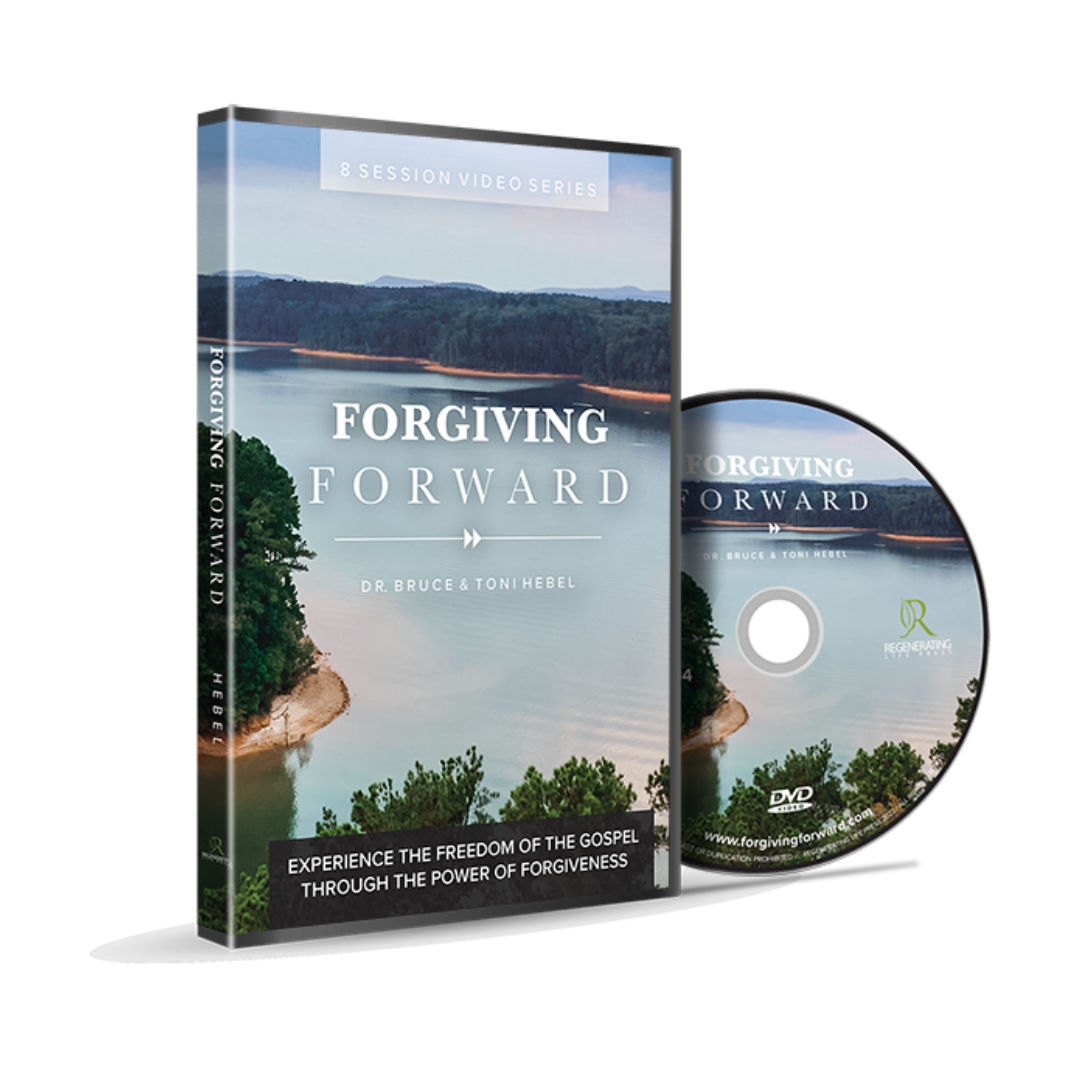HOW DO YOU KNOW YOU HAVE TRULY FORGIVEN?
Recently, Toni and I reconnected with Ken and Sophia (not their real names), a retired pastor couple, who are in their 80’s, that we’ve known for decades. We hadn’t seen them in a while, so it was great to catch up with them and share what God has been doing with us and Forgiving Forward. After hearing a few of the forgiveness breakthroughs we have witnessed, Ken said, “I have a question. How do you know that you have truly forgiven? I think I’ve forgiven, but how do I know for sure?” He went on to explain about a series of deep wounds in his childhood inflicted on him by family members. He told us that he thought he had forgiven them several years ago, but wasn’t sure how he would react if he was in the same room with them. “How can I be sure?”
We have learned over the years that this question is a good indicator the person hasn’t forgiven. When someone truly forgives, they know it. So, I said to Ken, tell me your story. For several years as a child, Ken was molested by a family member. When Ken told his mother about the abuse, she punished him, which created a deeper wounding than the actual abuse. Later, Ken put his faith in Christ and eventually became a pastor. Somewhere along the line, Ken “forgave” the family member, but told us “I don’t know what I would do if I was in the same room with him.” It was clear to us that Ken had not truly forgiven.
I asked Ken if he would like for me to coach him to forgive the wounds he had described so he can be free. Courageously, he said yes. I say courageous because as a retired pastor, it took a lot of humility to admit that he needed help understanding and applying forgiveness. After I coached him to forgive, I asked him, “How’s your heart?” He responded, “Good!” He paused a second, then said. “Untethered!” After pondering a little more, he declared, “I’m Free! I’m finally free!” Sophia raised her hands and exclaimed, “YES! Finally!! Thank you, Lord!!!”
Unfortunately, Ken’s story is not unique. We consistently have people who come to us for help thinking they have forgiven but are still experiencing torment. There are two primary misunderstandings about forgiveness that keep people in torment. The first is the concept of “letting it go.” To be candid, I used to believe this. Before I understood the Forgiving Forward model, I taught a series on forgiveness called “Off the Hook.” My basic premise was that we are to let the one who hurt us “off the hook” by dismissing the charge against them. Simply “let it go” and don’t hold it against them anymore. The problem is this model does not adequately deal with the debt the wound incurred. Who pays for what happened? I’m no longer requiring it of them, so does that mean I just absorb the loss? If so, how do I deal with the unfairness and resentment that inevitably follows.
Only Gospel-centric forgiveness settles the debt issue. Forgiveness is applying the blood of Jesus as payment in full for every wound I ever have or will suffer. When Ken realized that Jesus paid for what his abuser did, he was able to find freedom by choosing to forgive.
The second is forgiving the person rather than the wounds the person caused. Technically speaking, we don’t forgive people, we forgive the wounds people cause. Jesus said, “Father, forgive them; for they do not know what they are doing.” (Luke 23:34) We’ve met with a lot of people who have said to us, “Oh, I’ve forgiven my Dad,” but they are still in torment. We will respond, “For what, existing? He’s created in the image of God!” We are to honor all men even though we denounce what they do. We forgive wounds. Forgiveness is transactional and transactions require specificity. Gospel-centric forgiveness requires that we state clearly what we are forgiving; what people have or have not done, and how they have or have not made us feel. “From my heart, I choose to forgive _____ from my heart for ______.” Ken became untethered to his past when he chose to forgive the specific things that his abuser, parents, and others (including himself) had done to wound him. We don’t just forgive people, we forgive wounds.
What about you? Have you, like my friend Ken, think you have forgiven, but still find yourself in torment? If so, there is a way you can know for sure that you have forgiven. You can be free from torment. If you need help, grab a copy of the Forgiving Forward book, go through the Video Course on our website or just give us a call. One of our coaches would love to assist you to find freedom through forgiveness.



